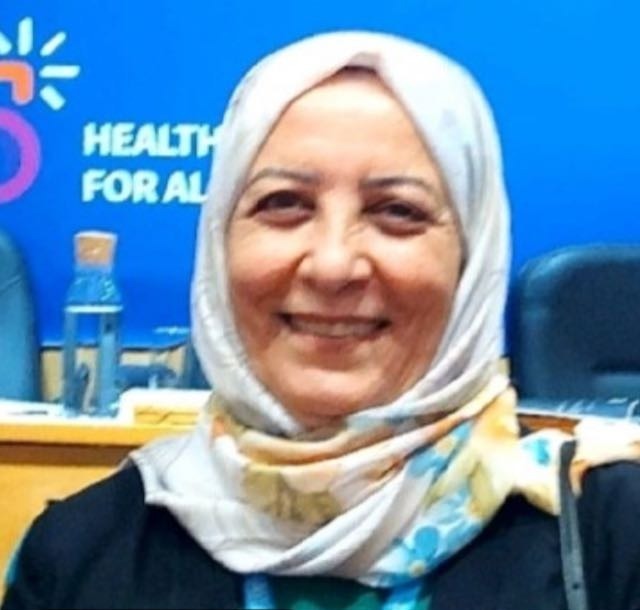Eye-opening truths on women’s cancer
TDT | Manama
The Daily Tribune – www.newsofbahrain.com
Dr. Ibtihal Fadhil, Founder and Chair of the Eastern Mediterranean NCD Alliance (EM-NCDA) on Women’s Cancer in the Eastern Mediterranean Region, has shared critical insights regarding the prevalent types of women’s cancers, their unique challenges, and the actions needed to combat them.
The EM-NCDA is a coalition of non-governmental organisations in the Eastern Mediterranean Region, dedicated to tackling the burden of non-communicable diseases (NCDs).
In an exclusive interview with The Daily Tribune, Dr. Fadhil emphasised the pressing issues faced by patients, including restricted access to screening programs, societal barriers, and the looming threat of a doubling and tripling of cancer diagnoses by 2040.
She highlighted the crucial role of governments in implementing robust tobacco control laws, promoting healthy lifestyles, and strengthening healthcare infrastructure to tackle the high prevalence of cancer and cancer-related deaths.
Dr. Fadhil also discussed Bahrain’s progress in healthcare and outlined areas for improvement, including the expansion of cancer screening programs and enhancing patient support services.
The EM-NCDA will host an upcoming event on the sidelines of the 77th World Health Assembly (WHA), titled “Uniting Voices for Action on Women’s Cancers in the EMR.”
This convening is scheduled to take place on Tuesday, 28 May 2024, at Novotel Geneve Centre, Switzerland, from 17:30 to 19:30 CEST, with the aim to mobilise stakeholders toward action amplifying women’s voices grappling with cancer in the EMR.
During the interview, Dr. Fadhil also outlined the next steps for EM-NCDA, emphasising advocacy, capacity building, awareness programs, and collaboration to advance the agenda for women’s cancer care in the EMR.
The Daily Tribune is publishing an insightful question-and-answer session with Dr. Fadhil:
What are the most prevalent types of women’s cancers in the Eastern Mediterranean Region, and what unique challenges do these patients face in terms of diagnosis and treatment?
Dr. Ibtihal Fadhil: Breast, colorectal, cervical, ovarian, and liver cancers are the five most common types of women’s cancers in the Eastern Mediterranean region (EMR), and they represent a serious public health concern.
When it comes to diagnosis and therapy, each of these tumors has a particular challenges Breast cancer includes restricted access to screening programs, which lead to diagnosis in the later stages and lower survival rates. Misinformation, and social and cultural beliefs, make it difficult for people to participate in screening and vaccination programs.
The absence of standard screening techniques for ovarian cancer, such as reliable biomarkers or screening assays. Limited prevention programs such as (tobacco control and obesity reduction measures)
Why is the incidence of cancer expected to double and trip across EMR countries by 2040?
Dr. Ibtihal Fadhil: Several interrelated factors may contribute to the projected rise in cancer incidence by 2040 across the EMR countries.
Population Growth and Aging: People are living longer thanks to advancements in healthcare and life expectancy, which raises the general risk of cancer, which is more common in older age groups. Changing Lifestyles: Changes in food habits (poor diets), sedentary lifestyles, tobacco use, and pollution exposure.
can lead to a rise in risk factors for cancer, together with socioeconomic development, may contribute to increased obesity rates, which are known to be risk factors for various cancer types (breast, colon). Tobacco Use: Despite initiatives to reduce tobacco use, many Middle Eastern nations — including Syria, Jordan, Pakistan, Lebanon, and Iraq — retain high rates of smoking.
Tobacco use is a major contributor to the rising cancer burden and is a main cause of many malignancies, including cancers of the mouth, throat, lungs, and bladder.
Limited Access to Healthcare: In many parts of these countries, access to cancer prevention, screening, diagnosis, and treatment services is still restricted, even with advancements in healthcare infrastructure.
Financial limitations, remote location, cultural beliefs, and other obstacles can prevent people from accessing healthcare, where women are often seen at advanced stages of cancer limiting their chance of survival.
Conflict and War: Prolonged periods of war and violence, like those that have occurred in many countries in our region (Sudan, Syria, Libya, and Iraq), cause population displacement, disruption of healthcare systems, and a rise in the prevalence of starvation and poverty.
These illnesses not only raise the chance of developing cancer but also make it more difficult to detect, and treat cancer.
Is the expected number of new cancer diagnoses and cancer-related deaths in the EMR higher than in other parts of the world?
If so, what are the reasons? Dr. Ibtihal Fadhil: Indeed, in comparison to certain other regions of the world, the Eastern Mediterranean Region (EMR) is predicted to see a larger number of new cancer diagnoses and deaths from cancer. This increases cancer burden.
Dr. Ibtihal Fadhil
Related Posts


